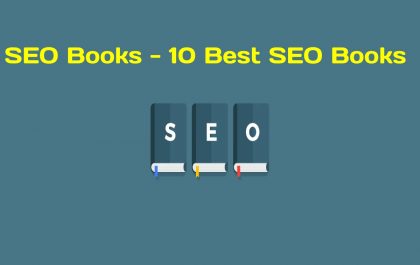New user search trends define the future of SEO. The world has changed, the internet has changed, and how we search through the net has changed. For this reason, search engines must constantly adapt their algorithms, which entails tremendous changes in the short-term future of what we know as SEO positioning.

1. Exact match keywords are deprecated
One essential fluctuation in Google’s algorithm was lowering specific keywords’ requirements.
It used to be simple and pretty open: whenever a user enters a search query into the search box, Google searches the documents in its index, matches that search query with the phrases in those documents, and then makes those documents available to the user based on their perceived quality and authority (calculated primarily using backlinks pointing to each page).
Back then, SEO was about identifying those keywords, ensuring their high density on the page, and building backlinks.
2. Usability becomes part of SEO
Google has worked hard to ensure its users have a good experience using its search interface and third-party sites developed by Google.
It all started in 2010 when Google announced site speed as a ranking factor and sustained into 2016 when it warned webmasters about using “aggressive interstitials,” annoying popups that you need to close to cooperate with a webpage.
Concerns about the site’s security are mandatory to switch to secure protocols and have finally become superficial with the recent update of the site skill, which is now live.
The Page Experience Update is Google’s latest attempt to rate the usability of each page (when accessed from a mobile device). It measures page speed, security, load time, lack of annoying interstitials, safe browsing status, and mobile compatibility.
3. True Answer Engine Framework
When Google starts, it acts on behalf of more like a cataloguer: type in your query, and it will display a list of resources for you to discover. Over the past decade, Google has been experimenting with becoming an answer engine: type in your question, and you’ll get all the answers instantly.
These answers come in Featured Snippets, Rich Snippets, Knowledge Graphs, and People Also Ask boxes that provide follow-up questions and quick responses.
4. Exact match keywords are deprecated
One of the most significant deviations from Google’s procedure was lowering the requirements for specific keywords.
It used to be simple and reasonably open-ended: whenever a user types a search query into the search box, Google searches the documents in its index, matches that search query against the phrases in those documents, and then makes those documents available to the user based on their perceived quality and authority (mainly calculated based on backlinks pointing to each page).
Back then, SEO was about identifying those keywords, ensuring their high density on the page, and building backlinks.
5. Usability becomes part of SEO
Google has worked hard to ensure its users have a good experience using its search interface and third-party websites developed by Google.
It all started in 2010 when Google announced website speed as a ranking factor and continued into 2016. It warned webmasters against using “intrusive interstitials,” i.e., a website made its mandatory switch to secure protocols and was finally clear with the recent update to the site experience.
The Page Experience Update is Google’s latest attempt to measure the usability of each page (when accessed from a mobile device). It measures page speed, security, load time, lack of annoying interstitials, safe browsing status, and mobile compatibility.
6. Structure of the actual reaction mechanism
When Google first started, it acted more like a librarian: type in your search query, and it will bring up a list of resources for you to discover. However, for the last time, Google has been experimenting with becoming an answer engine. Type in your question, and you’ll get all the answers instantly.
These answers come from Included Snippets, Rich Snippets, Knowledge Graphs, and People. Also, Ask boxes that provide follow-up queries and quick solutions to them.
7. Content remains king
After the day, what you need is to create user-centric content that focuses on providing answers.
People look for information regardless of where they search, so the content remains crucial.
· Find innovative SEO platforms
Since Google is constantly innovating, so should your SEO strategy. SEO is building its future!
Trying new SEO tools that take time and effort to keep up with Google is always essential.
· Graphic content is almost always a great idea
As Google SERPs become more visual and interactive, so should your SEO strategy. That means creating and enhancing original videos and images. Tools like Creepy help you compare a visual marketing strategy.
The tool allows you to create large-scale original images and reuse them for any
8. More search options (no text)
Other (non-textual) search options (language, image, etc.) are slowly becoming more important. Although this is changing much more slowly than we expected.
Google has already rolled out voice search across all of their devices and clarified that voice search is essential for them. The uprising to a response machine was activated because Google wants to make non-browser searches more productive and meaningful.
9. Even less predictability
SEO becomes more complicated and unpredictable as Google gets more intelligent and harder to reconstruct.
It’s challenging to determine what’s moving the needle or what might have caused a drop in traffic. As there are hundreds (if not thousands) of factors at play.
Against this background, comprehensive and actionable SEO audits will likely become even more critical.
With less probability comes the need to up your SEO monitoring game. It would help if you kept an eye on what you’re doing and how your site’s visibility in organic search is changing. Consider using all kinds of monitoring tools like brand references and link checkers:
Conclusion
The future of SEO is more integrated. The focus will be on long-term growth and quick wins, and intelligent technologies that help you spot and monitor organic search opportunities become even more critical.
Related posts
Featured Posts
SEO Books – 10 Best SEO Books
A significant first step is to look for the best SEO books to enter the world of SEO if you…
Work From Home – Advantages, Disadvantages, and More
Working from home allows you to manage both home and work at the same time. Working from home is especially…



